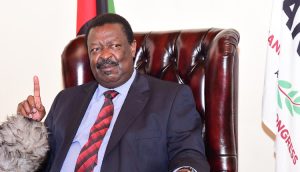In summary
- Last week, the National Treasury announced plans to reduce spending by 1.9 percent for 2024/25.
- East Africa’s largest economy intends to finance a budget of Sh3.8 trillion for the fiscal year starting from July 1, down from the original Sh4.2 trillion.
Kenya has submitted a new budget plan to the International Monetary Fund (IMF) after widespread protests led President William Ruto to retract the 2024 Finance Bill. The contentious bill had sparked protests due to its proposed tax measures, which aimed to generate at least Sh347 billion to fund the 2024/25 budget. The bill was in line with the IMF’s fiscal conditions for Kenya, focusing on domestic consolidation to reduce the country’s high debt levels. The National Treasury has also outlined plans to reduce spending for 2024/25 by 1.9 percent and increase the fiscal deficit to 3.6 percent of GDP, which will require additional borrowing.
East Africa’s largest economy is now planning to fund a budget of Sh3.8 trillion for the year that began on July 1, down from the initial Sh4.2 trillion. Prime Cabinet Secretary Musalia Mudavadi appeared before the Parliamentary Budget Committee on Monday and stated that Kenya expects the fund’s board to review and approve it by the end of August. Mudavadi expressed the hope that Kenya’s proposal will receive favorable consideration so they can move beyond the challenges they are facing.
Mudavadi’s remarks come at a time when Kenya’s relationship with the international lender is facing scrutiny. Many people are pointing fingers at the lender, accusing it of pressuring the government to raise taxes. The IMF’s post-Covid-19 recovery program, valued at $3.8 billion (Sh490.2 billion) and approved in 2021, is set to end in April next year.
Just last week, the Institute of Economic A ffairs (IEA) accused the IMF of changing the terms of Kenya’s fiscal recovery, adding more conditions that could harm the economy. The IEA criticized the international lender for increasing the demands from 26 to 36 in the sixth review, calling the change unfair.
ffairs (IEA) accused the IMF of changing the terms of Kenya’s fiscal recovery, adding more conditions that could harm the economy. The IEA criticized the international lender for increasing the demands from 26 to 36 in the sixth review, calling the change unfair.
The report titled “And Then, Floods”: A Critical Macroeconomic Assessment of IMF Conditionality on Kenya, 2021-present also accused the IMF of supporting Kenya’s decision to devalue the shilling and increase its foreign debt. According to the institute, the recommended fiscal adjustments should have been implemented early on to allow monetary policy to stabilize the exchange rate. However, the adjustments were delayed and the final target balance was much higher than the best practice.
“Despite the given rationale for increasing revenue ratios to support government functions, they have primarily served the suboptimal primary balance targets and led to chronic instability in tax structures.”
By Janet Namalwa
